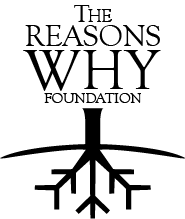
When people think of release from prison, they often picture a second chance, a clean slate, a fresh start. But for those who’ve served long-term sentences, release is not the end of their punishment. It’s the start of an entirely new challenge: one that demands more than a roof, a job, or a probation plan. It demands healing.
Since our inception in 2012, The Reasons Why Foundation have worked with many individuals serving or leaving long sentences - people who have often spent more than a decade in prison. Over the years, our trauma-informed mentoring service has taught us that successful resettlement cannot be achieved through logistics alone. Healing must come first. Because without healing, the past continues to shape the here and now and to dictate the future, no matter how well-planned the support package.
The hidden wounds of long-term imprisonment
Long sentences often begin with trauma and end with trauma. Many of the men and women we support have experienced adverse childhood experiences, poverty, parental suicide, abuse, racism, or systemic neglect before their incarceration. Prison didn’t repair these wounds, it deepened them.
Long-term incarceration reinforces survival behaviours: emotional shutdown, hypervigilance, disconnection from others, and a loss of personal agency. Relationships deteriorate or disappear entirely. Trust becomes a liability. For many, prison becomes the only environment where they feel a sense of control, even if it’s through hardened coping strategies.
When release finally arrives, it’s not into freedom, it’s into overwhelming uncertainty. And those same survival strategies that helped them endure prison can become barriers to connection, trust, and reintegration in the community. What kept them safe for years, now poses a threat to their continued safety.
Resettlement without healing is set-up to fail
Traditional resettlement services often focus on practical needs: housing, benefits, employment. These are crucial, yes, but they do not address the emotional and psychological barriers many long-term prisoners face.
Without opportunities to process their experiences, make sense of their identity, and rebuild emotional literacy, individuals can find themselves isolated, overwhelmed, and at risk of relapse into destructive behaviour. When systems prioritise outcomes over inner readiness, we fail to ask the most important question: Is this person emotionally prepared to live outside again?
At The Reasons Why Foundation, we’ve learned that healing is not an ‘optional extra’ to resettlement. It’s the foundation for lasting change.
A trauma-informed approach: meeting people where they are
Our mentoring model starts from a different place. We don’t ask: What’s wrong with you? We ask: What’s happened to you?
This simple shift creates space for people to explore their story without shame. Our mentors, many with lived experience, work relationally, not transactionally. That means building trust slowly, sitting with discomfort, and allowing space for the complexities of identity, grief, and growth to emerge.
We support people not just to “stay out”, but to come home to themselves. That process often includes:
- Rebuilding emotional awareness and regulation
- Processing trauma and shame with safety
- Exploring values and identity beyond the label of “offender”
- Navigating trust and intimacy in relationships
- Learning how to ask for help without fear.
These are not “soft skills”. These are survival tools for life on the outside.
Healing is a social process, not a private task
No one heals in isolation. For many long-term prisoners, the absence of healthy connection has been lifelong. That’s why our approach emphasises safe relationships, with mentors, peers, and community.
Healing also means addressing societal stigma. Too often, long-term prisoners are viewed as irredeemable. But the truth is, many have already undergone profound change inside. What they need is the chance to be seen, supported, and believed in, not just monitored and managed.
A call to the sector: let’s redefine resettlement
If we want long-term prisoners to resettle successfully, we must change what we mean by “success”. Instead of asking whether someone has ticked off housing or employment within six weeks, let’s ask:
- Have they found someone they can trust?
- Have they begun to make peace with their past?
- Are they developing a new relationship with themselves and the world?
- Do they feel they matter?
Resettlement is not a checklist. It’s a process of becoming, and for those who’ve lived in survival mode for decades, it takes time, patience, and care.
Conclusion: beyond services, toward sanctuary
There is nothing inevitable about reoffending, but neither is desistance a simple matter of willpower. If we want people to build lives worth living, we must offer more than services. We must offer sanctuary. We must create environments where healing is possible, emotionally, relationally, and socially.
At The Reasons Why Foundation, we’ve seen what becomes possible when people are given the space to be heard, held, and empowered. It’s time we brought that lens into the heart of criminal justice support, not just for the benefit of those we serve, but for the health of our communities too.
Because healing is not a luxury. For long-term prisoners, it’s the only real way home.
Find out more about The Reasons Why Foundation here
Roger Blackman
Founder of The Reasons Why Foundation
What's new
Blogs
Membership renewals 2026: what members need to know
Publications
Latest on X
The role is for a leader from an organisation focused on racially minoritised people, with expertise in service delivery, policy, advocacy, or related areas in criminal justice. Racial disparities are present at every CJS stage. This role ensures these voices are central in shaping policy to help address and eradicate them. Apply by Mon 18 Nov, 10am. More info: https://www.clinks.org/voluntary-community-sector/vacancies/15566 #CriminalJustice #RR3 #RacialEquity
